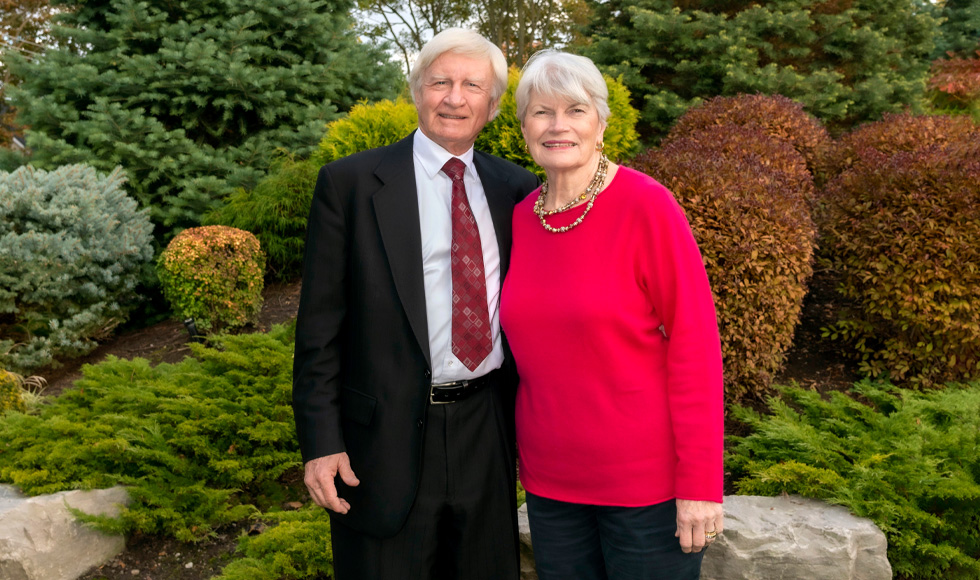McMaster alumnus’ $10M gift accelerates search for allergy cure

December 17, 2020
McMaster University alumnus Walter Schroeder and his family have given $10 million to the university to fast-track treatment and prevention research for the search to cure allergies.
The funding is two-pronged, and will establish, following university approvals, the Schroeder Allergy and Immunology Research Institute, which will support senior scientists and scholars in allergy investigation. In addition, it will provide for the use of bioinformatics to analyze the massive data generated by the successful CHILD Cohort Study, a national study following various childhood conditions, including the origins of allergy and asthma, in Canadian children as they grow up.
Schroeder, a ’69 MBA graduate, credits the university for starting his career.
“McMaster at the time was one of the top accounting and finance schools in Canada,” he said. “With superior professors and small class sizes, we studied at levels more at the PhD level, and this proved to be invaluable in the creation of Dominion Bond Rating Service or DBRS, which I owned and ran for 40 years.
“The degree got me a job in the capital markets of the world, from which I was able to establish the number four rating agency in the world. Without the MBA that I received, I would never have gotten an initial job in the capital markets, so I am forever grateful to McMaster for giving me the opportunity to take my life to the next stage. Thank you McMaster University.”
He and his wife established the Walter and Maria Schroeder Foundation and, since selling DBRS in 2015, he has become a playwright, public policy influencer and philanthropist in health and education, particularly helping students coming from disadvantaged backgrounds.
The proposed Schroeder institute at McMaster will be home to an endowed chair in allergy and immunology research, and the inaugural holder will help set the vision for a world-class program in immunology and allergy over the next five years. The investment will also support several postdoctoral fellows in allergy bioinformatics as well as graduate students and scholars.
“Our aspiration around food allergy is bold, finding a cure through treatment and prevention,” said Paul O’Byrne, dean and vice-president of McMaster’s Faculty of Health Sciences and a practising respirologist. “This is a significant boost to the success we’ve had in addressing allergies which impact three in 10 Canadians.”
McMaster president David Farrar said the Schroeders’ investment in health research is a testament to the calibre and expertise of the university’s researchers and clinicians.
“We are immensely grateful to Walter and Maria Schroeder for this pivotal support,” said Farrar. “Their remarkable gift underscores a shared commitment to world-class research that advances the health and well-being of Canadians everywhere.”
For the fourth consecutive year, McMaster has been named Canada’s most research-intensive university in the annual ranking of the country’s Top 50 Research Universities. The university also ranked 11th in the world for clinical, pre-clinical and health subjects by the Times Higher Education World University rankings for 2021.


